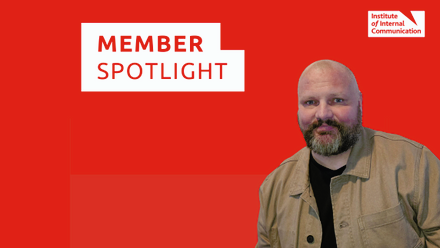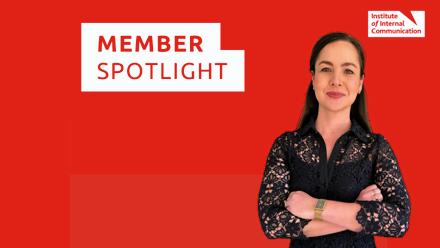I never planned to choose Internal Communications. I was a language learner. In high school and college, I studied French, Russian, American Sign Language, Japanese, and Chinese. I loved the process of learning a language — figuring out how the grammar was structured, seeing how words differed from (or aligned with!) my own tongue, trying out a new phrase on a native speaker to test its effect. It was Chinese that I ended up taking the farthest, reaching fluency, earning an MA in Chinese Literature, and eventually working in China as the Academic Director of a study abroad program for US undergraduates.
After I moved back to the US, study abroad remained my professional field. I worked for an educational travel provider for almost 20 years. It was at that company that I made the unexpected jump to internal communications. While working as a China Programs Manager, I discovered that I had a natural knack for IC work. I liked (and was good at) building relationships across departments, asking questions to unearth knots of confusion, guiding leadership to provide clarity, and ensuring messages were consistent, accessible, and understandable. Like many small to medium organizations, my company lacked an Internal Communications function, so I matched the company’s need with my newly discovered skills and created one. I dove in and did the work. And I learned everything I could about the field of Internal Comms along the way — I attended conferences, read books, attended webinars, and followed experts.
I eventually returned to school for an MS in Communications, and later earned my SCMP from the International Association of Business Communicators. Getting those certifications was wholly worthwhile and helped ground me in my newly chosen field. But today, having been in the IC field for over 15 years, I still find myself drawing on my early experiences as a language learner and China watcher.
Here’s what those experiences taught me:
Jargon and acronyms have got to go.
Achieving equity in messaging demands sensitivity to the fact that not everyone was raised in the same linguistic environment. Nor are they glued to the same social media or enveloped in the same pop culture. Take it from someone who’s been there: learning cultural references, acronyms, and jargon in Chinese was like learning a whole new language every single day. It’s hard. And as communicators, our job is to make communicating easy.
Everyone digests messages differently
Communicators need to consider differences beyond native tongue: what about aural learners that don’t like visuals and visual learners that don’t resonate with text? Readers who expect formality versus those who love the colloquial? Those who read versus those who skim versus those who glance? And the list goes on. Learning another language put these differences of preference in stark relief for me, and that visibility guides my communications.
The blank page is an opportunity, not a challenge
With all due respect to my MS in Comms which helped me enormously in charting my career path, it was my BA and MA in the Humanities that taught me how to read, write, and analyze. The confidence I gained from studying literature and history in their purest forms allows me to state what many can’t: I don’t fear the blank page. I’m also comfortable quickly analyzing and editing content created by others (even AI!) What’s more, I have found that there is always a place in an organization for someone who has these skills. Thank you, Humanities.
I never intended for my career path to lead me to Internal Communications, and there are times when I still marvel that I am where I am. But when I take a step back and look at the whole journey of choosing IC, it makes sense. After all, learning a language is a process of trying to understand more people. And communications, at its best, is simply about getting people to understand more.
Find out more about #IChoseIC Campaign and how to get involved here.






